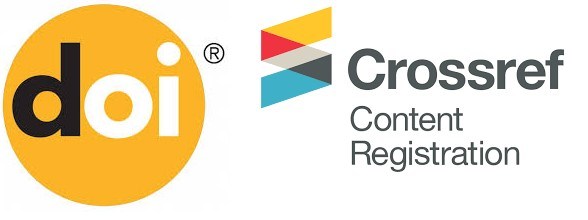On the New Reform of Mathematics education: An invitation to debate 3
DOI:
https://doi.org/10.46219/rechiem.v14i2.109Keywords:
Digital technology, Mathematical thinking, Society 5.0, Anthropological erasAbstract
Chile has made progress in the various aspects that concern the education of its population, although there are some worrying indicators of results. Here, we examine our mathematics education concerning the reform that education is undergoing throughout the world. This reform, not announced as such but easily observable, has profound and determining roots and consequences. In Mena-Lorca (2022a, 2022b), we have outlined, in broad terms, some aspects of the past and present of mathematics education in our country. Also, we highlighted the difficulty of reaching essential agreements due to criteria that are constructed without sufficiently considering phenomena of the most significant relevance. Here, we will try to add a perspective obtained by looking to the future: On the one hand, what the teaching of various aspects of the school curriculum of mathematics demands in response to unavoidable social requirements, and, on the other, a long-term general explanatory framework. The latter would have the virtue of untying some knots that have us somewhat trapped, as shown in Mena-Lorca (2022a, 2022b); nevertheless, concerted action, coming from agreements reached after a broad and explicit national debate, is required.
Downloads
References
Araya, R., Isoda, M., y González, O. (2020). A framework for Computational Thinking in preparation for transitioning to a Super Smart Society. Journal of Southeast Asian Education, 1, 1-16.
Araya, R., Isoda, M., y Van der Molen Moris, J. (2021). Developing Computational Thinking Teaching Strategies to Model Pandemics and Containment Measures. Int. J. Environ. Res. Public Health, 18, 12520. https://doi.org/10.3390/ijerph182312520
Arnon, I., Cottril, J., Dubinsky, E., Oktac, A., Roa Fuentes, S., Trigueros, M., y Weller, K., (2014). APOS theory. A framework for research and curriculum development in mathematics education. Springer. https://doi.org/10.1007/978-1-4614-7966-6
Ball, D. L., y Bass, H. (2003). Making Mathematics reasonable in school. En J. Kilpatrick, W. G. Martin y D. Schifter (Eds.), A Research companion to Principals and Standards for School Mathematics (pp. 27-44). National Council of Teachers of Mathematics.
Ball, D. L., Thames, M. H., y Phelps, G. (2008). Content knowledge for teaching: What makes it special? Journal of Teacher Education, 59(5), 389-407. https://doi.org/10.1177/0022487108324554
Ben-Zvi, D. (2001). Technological tools in statistics education. En Jornades Europees d'Estadística. L’ensenyament i la difusió de l’Estadística (pp. 207-220). Conselleria d’Economia, Comerç i Indústria. Govern de les Illes Balears.
Ben-Zvi, D., y Garfield, J. (2004a). Statistical Literacy, Reasoning, and Thinking: Goals, definitions, and challenges. En D. Ben-Zvi y J. Garfield (Eds.), Introduction to Statistical Literacy, Reasoning, and Thinking (pp. 3-15). Kluwer Academic Publications. https://doi.org/10.1007/1-4020-2278-6_1
Ben-Zvi, D., y Garfield, J. B. (Eds.). (2004b). The Challenge of Developing Statistical Literacy, Reasoning and Thinking. Kluwer Academic Publishers. https://doi.org/10.1007/1-4020-2278-6
Borromeo Ferri, R., Mena-Lorca, J., y Mena-Lorca, A. (Eds.). (2021). Fomento de la Educación-STEM y la Modelización Matemática para profesores. Kassell University Press. https://kobra.uni-kassel.de/handle/123456789/12985
Cantoral, R. (2013). Teoría Socioepistemológica de la Matemática Educativa. Estudios sobre construcción social del conocimiento. Gedisa.
Carrillo, J., Climent, N., Montes, M., Contreras, L. C., Flores-Medrano, E., Escudero-Ávila, D., Vasco, D., Rojas, N., Flores, P., Aguilar-González, A., Ribeiro, M., y Muñoz-Catalán, M. C. (2018). The Mathematics Teacher’s Specialised Knowledge (MTSK) model. Research in Mathematics Education, 20(3), 236-253. https://doi.org/10.1080/14794802.2018.1479981
Center for Research on International Cooperation in Educational Development. (2022). The University of Tsukuba-APEC International Cooperative Research. https://www.criced.tsukuba.ac.jp/math/apec/index_jp.php
Chevallard, Y. (1998). La transposición didáctica: Del saber sabio al saber enseñado. Aique.
Council for Science, Technology, and Innovation. (2017). Japan Science and Technology Policy. Realizing Society 5.0. https://www.japan.go.jp/abenomics/_userdata/abenomics/pdf/society_5.0.pdf
Dhombres, J. (1978). Nombre, mesure et continu: Épistémologie et histoire. CEDIC/Fernand Nathan.
Donald, M. (1991). Origins of the modern mind: Three stages in the evolution of culture and cognition. Harvard University Press.
Donald, M. (1993). Precis of origins of the modern mind: Three stages in the evolution of culture and cognition. Behavioral and Brain Sciences 16, 737-791. https://doi.org/10.1017/S0140525X00032647
Donald, M. (2007). The slow process: A hypothetical cognitive adaptation for distributed cognitive networks. Journal of Physiology Paris, 101(4-6), 214-222. https://doi.org/10.1016/j.jphysparis.2007.11.006
Duval, R. (1995). Semiosis y pensamiento humano. Universidad del Valle.
Estrella, S., Vergara, A., y González, O. (2021). Developing Data Sense: Making inferences from variability in tsunamis at Primary School. Statistics Education Research Journal, 20(2), 16-16.
Estrella, S., y Vidal-Zsabó, P. (2017). Alfabetización estadística a través del estudio de clases: representaciones de datos en primaria. Uno: Revista de Didáctica de las Matemáticas, 78, 12-17.
Estrella, S., Olfos, R., y Mena-Lorca, A. (2018). Lesson Study in Chile: A very promising but still uncertain path. En M. Quaresma, K. Winslow, S. Clivaz, J. P. da Ponte, A. N. Shuilleabhain y A. Takahashi (Eds.), Mathematics lesson study around the World: Theoretical and methodological issues (pp. 105-122). Springer International Publishing.
Foro de Cooperación Económica Asia Pacífico. (2016). 2016 Leaders’ Declaration. https://www.apec.org/Meeting-Papers/Leaders-Declarations/2016/2016_aelm
Foro de Cooperación Económica Asia Pacífico. (2018). Inclusive Mathematics for Sustainability in a Digital Economy (InMside). APEC Project Database. https://aimp2.apec.org/sites/PDB/Lists/Proposals/DispForm.aspx?ID=2247
Foro de Cooperación Económica Asia Pacífico. (2020). COVID-19 Hastens Automation. APEC Policy Support Unit. https://www.apec.org/Press/News-Releases/2020/0626_Future
Gal, I. (2000). Statistical literacy: Conceptual and instructional issues. En D. Coben, J. O’Donoghue y G. FitzSimons (Eds.), Perspectives on adults learning Mathematics: Research and practice (pp. 135-150). Kluwer. https://doi.org/10.1007/0-306-47221-X_8
Garfield, J. B., y Gal, I. (1999). Teaching and assessing statistical reasoning. En L. V. Stiff (Ed.), Developing mathematical reasoning in grades K-12 (pp. 207-219). National Council of Teachers of Mathematics.
Gersten, R., Taylor, M. J., Keys, T. D., Rolfhus, E., y Newman-Gonchar, R. (2014). Summary of research on the effectiveness of math professional development approaches. REL Southeast & National Center for Education, Evaluation and Regional Assistance. Institute of Education Science. US Department of Education.
Goldin, C., y Katz, L. (2008). The race between Education and Technology. Harvard University Press. https://doi.org/10.2307/j.ctvjf9x5x
González, O., Isoda, M., y Araya, R. (2020). A New Framework for Statistical Thinking in the Time of Big Data and the Digital Economy. Journal of Southeast Asian Education, 1, 59-67.
Isoda, M., y Katagiri, S. (2014). Pensamiento matemático: cómo desarrollarlo en la sala de clases. CIAE, Universidad de Chile.
Kano, T. (2019). Curriculum Reform for Digital Society: Challenges to 4th Industrial Revolution. http://www.criced.tsukuba.ac.jp/math/apec/apec2019/presentations/7Feb/2/rev-Toshiharu_Kano20190207.pdf
Kuzniak, A., y Richard, P. (2014). Espacios de trabajo matemático. Puntos de vista y perspectivas. Revista Latinoamericana de Investigación en Matemática Educativa, 17(4-1), 5-39. http://dx.doi.org/10.12802/relime.13.1741a
Liu, W. C. (2022). (Ed). Singapore’s approach to developing teachers: Hindsight, insight, and foresight. Routledge. https://doi.org/10.4324/9780429433641
Manyika, J., Chui, M., Brown, B., Bughin, J., Dobbs, R., Roxburgh, C., y Hung Byers, A. (2011). Big Data: The next frontier for innovation, competition, and productivity. The McKinsey Global Institute.
Mena-Lorca, A. (2022a). Sobre la nueva reforma de la educación matemática: invitación a un debate, 1. Revista Chilena de Educación Matemática, 14(1), 4-16. https://doi.org/10.46219/rechiem.v14i1.107
Mena-Lorca, A. (2022b). Sobre la nueva reforma de la educación matemática: invitación a un debate, 2. Revista Chilena de Educación Matemática, 14(1), 17-30. https://doi.org/10.46219/rechiem.v14i1.108
Mena-Lorca, A. Mena-Lorca, J., y Morales, A. (2022). Contemporary learning in the interaction of the human with data, via technology-mediated graphics: the discourse-representation dialogue in mathematics. En F. Cordero, M. Rosa, D. Orey, y P. Carranza (Eds.), Mathematical Modelling Programs in Latin America – A collaborative context for social construction of knowledge for educational change (pp. X-X). Springer.
Moore, D. S. (1997). New pedagogy and new content: The case of statistics. International Statistical Review, 65, 123-165. https://doi.org/10.2307/1403333
Morris, I. (2013). The measure of Civilization. How social development decides the fate of nations. Princeton University Press. https://doi.org/10.1515/9781400844760
Organización de las Naciones Unidas para la Educación, la Ciencia y la Cultura. (2016). Educación 2030. Declaración de Incheon y Marco de Acción para la realización del Objetivo de Desarrollo Sostenible 4: Garantizar una educación inclusiva y equitativa de calidad y promover oportunidades de aprendizaje permanente para todos. https://unesdoc.unesco.org/ark:/48223/pf0000245656_spa
Organización de las Naciones Unidas para la Educación, la Ciencia y la Cultura. (2020). COVID-19 Education. How many students are at risk of not returning to school? July 2020. UNESCO.
Organización de las Naciones Unidas para la Educación, la Ciencia y la Cultura. (2021). Reimaginar juntos nuestros futuros – Un nuevo contrato social para la educación. UNESCO.
Organización para la Cooperación y el Desarrollo Económicos. (2004). Revisión de Políticas Nacionales de Educación. Chile. OECD.
Organización para la Cooperación y el Desarrollo Económicos. (2018). The future of education and skills. Education 2030. Secretary-General of the OECD.
Oteiza, F. (2015). Una visión acerca de la educación matemática en Chile: cómo caracterizar su presente, los principales hitos del proceso de llegar allí y cómo pensar el futuro. En X. Martínez y O. Camarena (Eds.), La educación matemática en el siglo XXI (pp. 41-66). Instituto Politécnico Nacional.
Peirce, C. S. (1998). The Essential Peirce. Volume 2. Selected Philosophical Writings (1893-1913). Indiana University Press.
Shaffer, D. W., y Kaput, J. J. (1988). Mathematics and Virtual Culture: An evolutionary perspective on Technology and Mathematics Education. Educational Studies in Mathematics, 37, 97-119. https://doi.org/10.1023/A:1003590914788
SEAMEO Secretariat. (2022, 10 de febrero). 10th SEAMEO-University of Tsukuba Symposium [Video]. Youtube. https://www.youtube.com/watch?v=X6Znu8bnIO0
Shulman, L. (1986). Those who understand: Knowledge growth in teaching. Educational Researcher, 15(2), 4-14. https://doi.org/10.3102/0013189X015002004
Tedre, M., y Denning, P. (2016). The long quest for Computational Thinking. https://doi.org/10.1145/2999541.2999542
Turchin, P. (2016). Ultrasociety: How 10,000 years of war made humans the greatest cooperators on Earth. Beresta Books.
Villani, C., Schoenauer, M., Bonnet, Y., Berthet, C., Cornut, A.-C., Levin, F., y Rondepierre, B. (2018). Donner un sens à l´Intelligence Artificielle: Pour une stratégie nationale et européenne. Mission Villani sur l’intelligence artificielle. AI for Humanity. https://www.aiforhumanity.fr/pdfs/MissionVillani_Presse_FR-VF.pdf
Wild, C., y Pfannkuch, M. (1999). Statistical thinking in empirical enquiry. International Statistical Review, 67(3), 223-248. https://doi.org/10.2307/1403699
Wing, J. (2006). Computational thinking. Communications of the ACM, 49(3), 33-35. https://doi.org/10.1145/1118178.1118215
Wing, J. (2014). Computational thinking benefits society. 40th Anniversary Blog of Social Issues in Computing. http://socialissues.cs.toronto.edu/index.html%3Fp=279.html
Wolfram, S. (2016, 7 de septiembre). How to teach computational thinking. Wired. https://www.wired.com/2016/09/how-to-teach-computational-thinking/
Downloads
Published
How to Cite
Issue
Section
License
Copyright (c) 2022 Revista Chilena de Educación Matemática

This work is licensed under a Creative Commons Attribution 4.0 International License.











